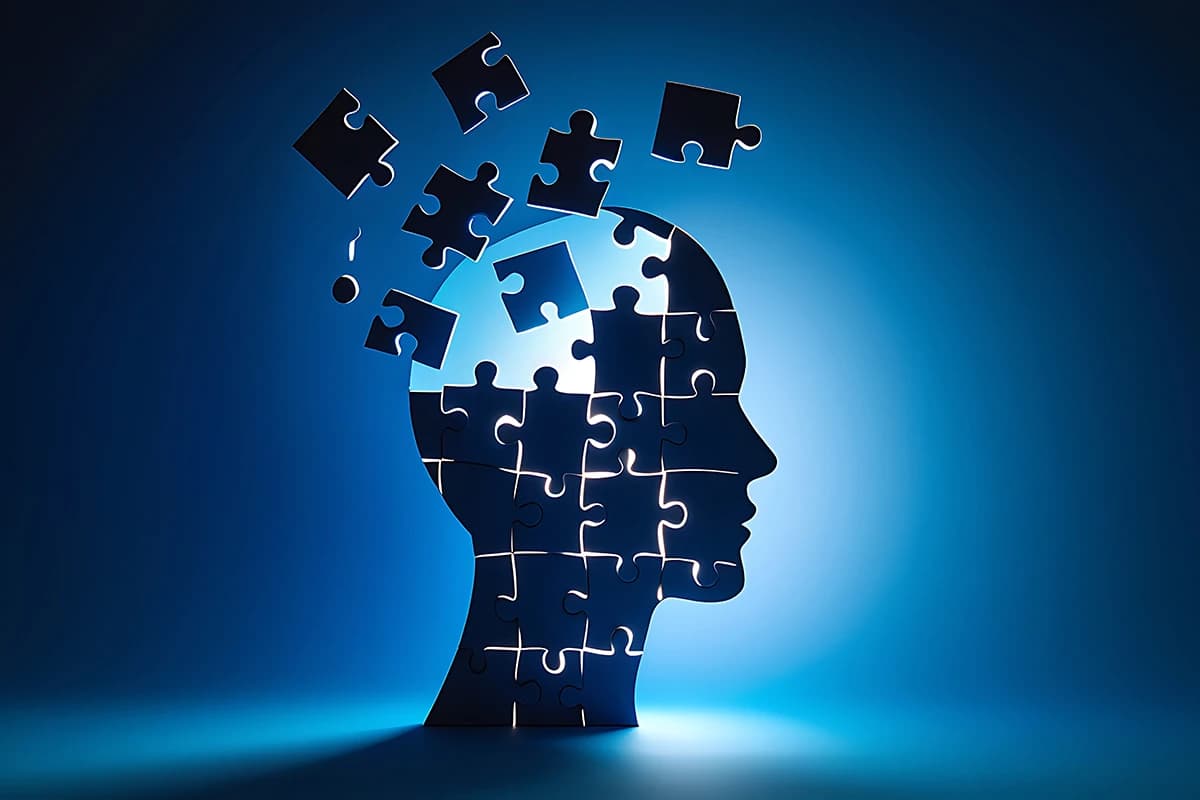October 1, 2025
Signs of Alzheimer’s Disease You May Not Recognize
Alzheimer’s disease can present a variety of symptoms. Your loved one may exhibit a single or a few common signs of memory loss, but there are also lesser-known symptoms that you may not know about. Learning to spot them and take proactive measures to address them can help your senior receive the care they need. Doing so can help slow the disease progression so your loved one can live a comfortable life.

Why is Alzheimer’s Difficult to Detect?
Alzheimer’s, particularly during the early stages, can be mistaken for the symptoms of normal aging. They may include forgetfulness, trouble solving problems, confusion and misplacing items more frequently. Cognitive conditions typically present gradual changes, which can make them difficult to identify until they’re more advanced.
The progressive nature makes it tricky to spot in the moment, especially if your loved one has other medical issues that exhibit similar symptoms. Mood disorders like anxiety and depression can contribute to concentration problems, while medication side effects can exacerbate confusion. The stigma associated with Alzheimer’s disease can also create a sense of fear surrounding diagnosis, causing people to resist seeking medical support.
Cognitive Signs of Alzheimer’s Disease
While memory loss is one of the most well-known signs of Alzheimer’s, other cognitive changes are important to note, too.
Be mindful of the following issues:
- Difficulty finding the right word: Does your senior have trouble choosing their words or following a conversation? They might start using different words to describe things or ask for help trying to identify something.
- Inability to complete familiar tasks: Damage to memory pathways makes it difficult to recall the information they need to do chores and remedial tasks.
- Misplacing items: Your loved one may leave items in unusual places or lose things and not be able to retrace their steps. They might suggest others are moving or stealing their possessions.
Behavioral and Emotional Symptoms of Alzheimer’s
Your loved one may exhibit mood and personality changes if they develop Alzheimer’s. That can leave them feeling confused, frustrated and scared.
Behavioral and emotional signs include:
- Irritability: Alzheimer’s changes how your brain’s frontal lobe regulates emotion. Your loved one might be more prone to anger and impatience, especially if they struggle to complete everyday tasks.
- Social withdrawal: You may chalk it up to your senior being a homebody, but it may be a sign of cognitive change. Their inability to participate in a conversation can cause your loved one to retreat from social situations.
- Poor judgement: Has your loved one made financial mistakes? Do they seem disoriented or ignore traffic signals while driving? Are they neglecting their personal hygiene? Those signs may suggest a change in their judgment.
Sensory Symptoms Associated with Alzheimer’s
Physical symptoms associated with Alzheimer’s disease might be less obvious than cognitive and behavioral changes, which is why they could go unnoticed.
Be mindful of the following:
- Spatial awareness issues: Vision changes can occur if your loved one develops Alzheimer’s. You may notice they have trouble judging distances, so they frequently run into furniture or miss steps. Trouble navigating a familiar setting is another indicator of spatial awareness issues.
- Poor balance and coordination: Slow reflexes and muscle loss can affect your loved one’s ability to move efficiently and safely.
- Difficulty handling objects: Alzheimer’s can damage the areas of the brain responsible for executing movement. Slower cognitive processing can also affect how your loved one’s brain signals their hands.
What To Do If Your Loved One Has Memory Loss
Alzheimer’s awareness is crucial to early diagnosis and comprehensive treatment. If you suspect your loved one is experiencing memory loss, it’s important to seek medical support as soon as possible.
Here are some steps to take:
- Track the frequency and severity of their symptoms as soon as you notice them.
- Consult other family members and loved ones for additional observations.
- Schedule an appointment with your senior’s primary physician to rule out other conditions.
- Ask for a referral for a specialized assessment.
Memory Care at Embassy Healthcare
Quality memory care requires a hands-on approach. Embassy Healthcare specializes in providing personalized services to those facing cognitive changes. Your loved one will have access to a dedicated team, care coordination and other management programs so they can live well. Contact us to learn more about our locations and services.
